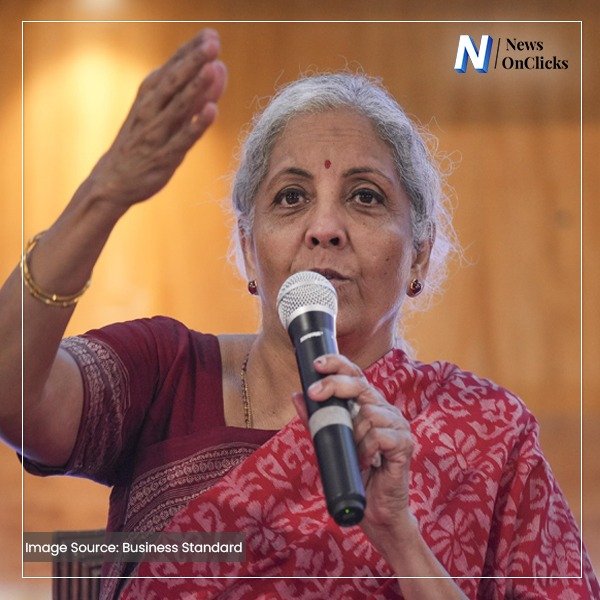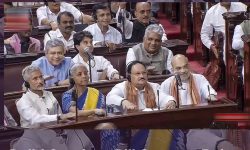
Finance Minister Nirmala Sitharaman was unexpectedly confronted by a stockbroker at a
recent BSE event in Mumbai about India’s high-taxation regime, sparking off nationwide
debates on the country’s tax system complexity. The ongoing exchange has since gone viral
and is indicative of growing public annoyance with investors over the labyrinthine taxation
they must bear from the government.
On 14th May 2024, during the ‘Viksit Bharat 2047 – Vision for Indian Financial Markets’
event in Mumbai, she was taken to task by a stockbroker who questioned the variety of
taxes that investors face. Specifically, taxes included Goods and Services Tax (GST),
Integrated Goods and Services Tax (IGST), stamp duty, Securities Transaction Tax (STT),
and long-term capital gains tax. In essence, all these taxes surpass what an investor earns
thereby making the government become “a sleeping partner” in their investment according to
him.
A retail investor’s transaction, for example when a broker acts as an intermediary in the sale
of securities, attracts GST, IGST, stamp duty, STT and long term capital gain tax.
Consequently today the Indian government earns more than him. I stake all my possessions
and run many risks but when I get profit it’s all taken away by the state. You are like
someone who is sleeping next to me. As far as my finances are concerned this is not
working; neither are my staff nor my risk nor anything about them. “So what have you got to
say about that?” The broker asked with emphasis.
Another thing which also bothers him is the high taxation on property purchases most
especially in Mumbai whereby taxes can go up to 11% from the total value of the real estate.
He talked about how stamp duty and GST hinder people with limited funds from purchasing
houses.
“In Bombay, if anyone wants to buy a house today, it’s a nightmare. I am paying taxes; I
have white money. We have to pay everything by cheque, but the seller will not accept cash.
So, my bank balance, after paying all taxes, is purely to the government. When I am buying
a house, I have to pay stamp duty and GST, which amounts to 11 per cent in Bombay. So,
while buying a house in Bombay, 11 percent goes out of my pocket simply to purchase the
house. So, how will you assist a small person with limited resources to buy a house?” he
asked.
Sitharaman’s response was humorous and revealing at once. “A sleeping partner cannot
answer sitting here” she said leaving no doubt that she knew exactly how frustrated brokers
could get as well as avoiding answering questions at that specific instant.
This discussion became a viral video and sparked a national debate about Sitharaman’s
openness, with some people praising her for the same while others are demanding concrete
actions on tax simplification. Tax reforms which will help investors and ordinary citizens are
urgent according to economists, business leaders, and political analysts among others.
Sitharaman’s frank talk has opened up India’s taxation policies to scrutiny in what is now
termed as a continuing debate. How this argument ends may have a major influence on the
future economic direction of the nation that might fix long-term issues faced by investors and
taxpayers. The meaning of such forthcoming months will be determined whether or not this
candid moment results in workable tax reforms.









